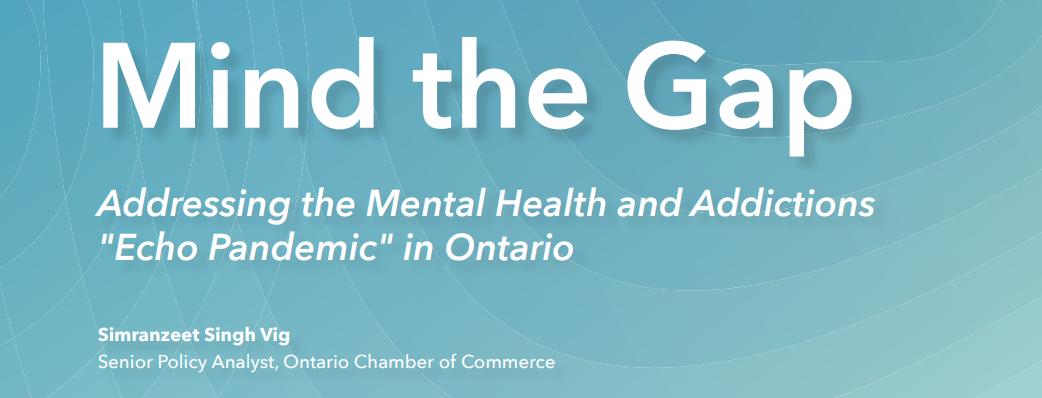
In the midst of Healthy Workplace Month, the Ontario Chamber of Commerce (OCC) released its report: Mind the Gap: Addressing the Mental Health and Addictions “Echo Pandemic” in Ontario.
The report highlights the urgent need to address the rising demand in Ontario for mental health and addictions services post-pandemic. It outlines the impacts that mental health and addictions have on day-to-day life and productivity – and the disproportionate impact on small and medium-sized enterprises, frontline workers and underserved populations including Indigenous people and northern, remote, and racialized communities.
The report provides 21 recommendations based on extensive research and consultations with chamber members and mental health experts, including the Canadian Mental Health Association (CMHA), Ontario. These recommendations are focused on three areas: social and community, health systems, and small and medium-sized enterprises.
Recommendations for social and community
The recommendations in the social and community category highlight the need for input from Indigenous communities and people with lived experiences when designing and delivering mental health and addiction tools, as well as the importance of supplementing resources for supportive housing. Research shows that investing in housing with mental health and addictions supports can help combat homelessness and contributes to significant cost savings in healthcare.
Recommendations for health systems
The report’s seven recommendations for Ontario’s health systems touch on areas of improvement directed at supporting evidence-based solutions, community-based mental health services, leveraging data, enhancing primary care capacity for mental health, a coordinated human health resources (HHR) strategy for the mental health and addictions sector, and more.
Recommendations for small and medium-sized enterprises
The report makes 11 recommendations for small and medium-sized enterprises, including developing a mental health strategy, prioritizing employee education to bridge the gap in utilizing mental health resources, and taking a whole-of-government approach to address mental health and addictions challenges for Ontario’s business community.
The OCC also recommended that the private sector get involved in investing towards mental health research and innovation, noting that since the pandemic, research and innovation in mental health has been fragmented.
While concerns around workplace mental health predates the pandemic, COVID-19 has, without question, exacerbated the problem. Although most businesses recognize the importance of investing in mental health, few have put a formal strategy in place, creating a mental health action gap. CMHA Ontario provides strategies to support and strengthen mental health in the workplace through our Mental Health Works and Your Health Space programs.
Read the full OCC report on their website.